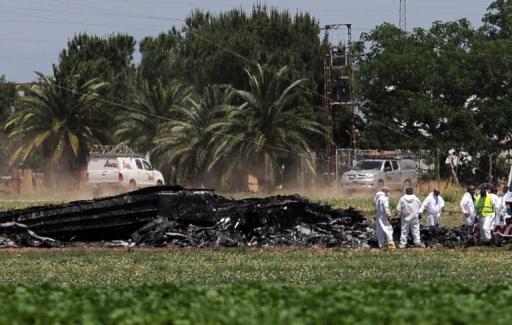An analysis of the black boxes of the A400M plane which crashed in Spain has revealed that three of the aircraft's four engines failed before it ploughed into a field killing four in May, Airbus said Wednesday.

Company officials had earlier warned of a technical bug in the units which control the engines, which were believed to have been poorly installed during final assembly.
Investigators "confirmed that engines one, two and three experienced power frozen after lift-off and did not respond to the crew's attempts to control the power setting in the normal way," the company said in a statement.
"Preliminary analyses have shown that all other aircraft systems performed normally and did not identify any other abnormalities throughout the flight."
The A400M plane that crashed in a field and burst into flames just north of Seville's airport on May 9 was undergoing a test flight, before it was due to be delivered to Turkey in July.
Two of the six people on board the plane, a mechanic and an engineer, survived the crash and were rushed to hospital in critical condition.
The Spanish news website El Confidencial reported Tuesday that several safety protocols were allegedly ignored during the final assembly of plane, reportedly to make up for delays in delivery.
The computer system that controls the plane's engines, the Full Authority Digital Engine Control (FADEC), "should have been tested before, in a simulator, to check if everything worked," the website added.
The units which control the engines of the plane were poorly installed during final assembly, which could have led to the engines malfunctioning, Airbus group's chief of strategy Marwan Lahoud, earlier told the German daily Handelsblatt.
Fabrice Bregier, chief executive of the plane making unit of Airbus Group, said Saturday that was "either a weakness in the test procedure of planes before they fly, or a problem that results from the implementation of these procedures."





.jpg)



